SUMMARY
This is AI generated summarization, which may have errors. For context, always refer to the full article.
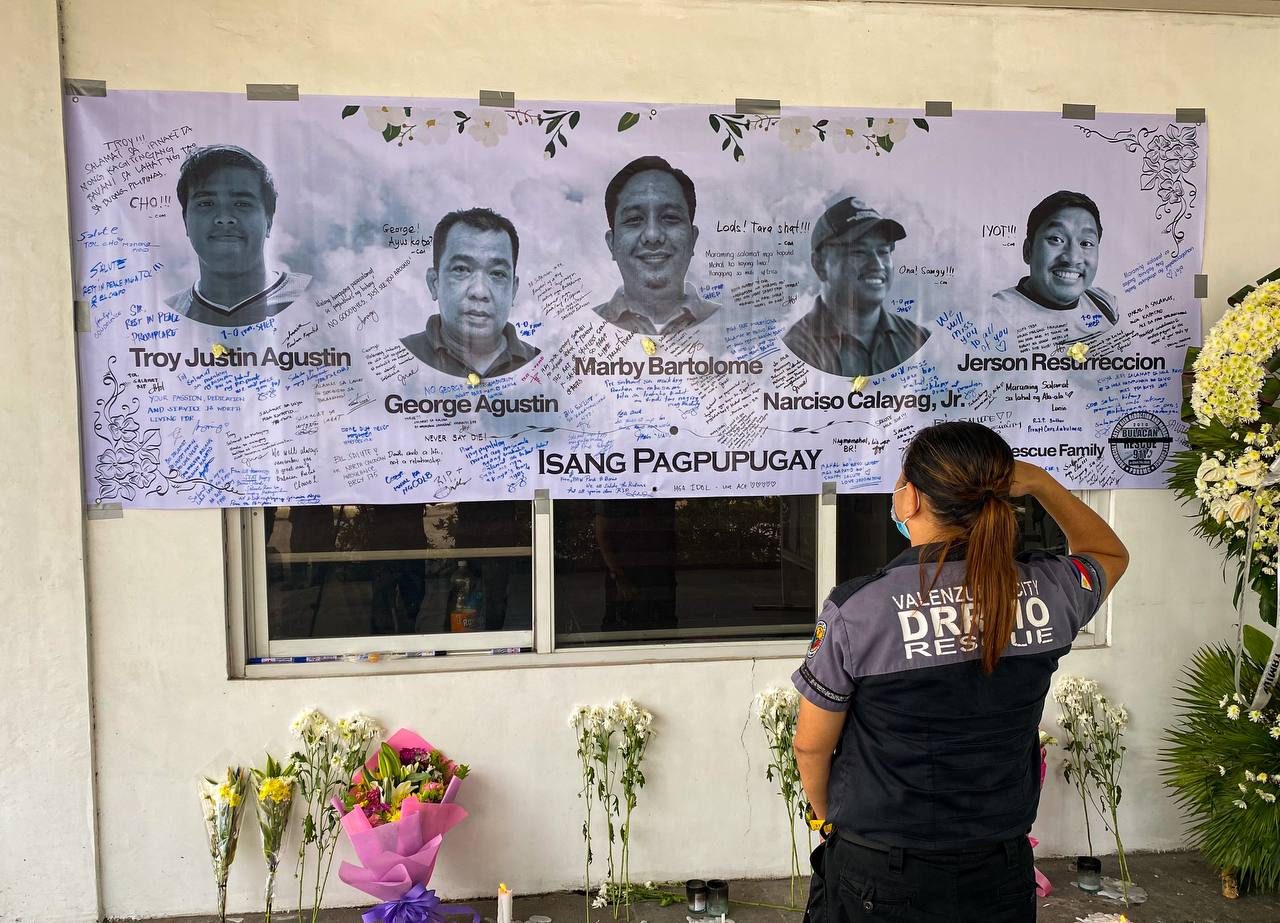
BULACAN, Philippines – With the recent aftermath of Severe Tropical Storm Paeng (Nalgae) on October 29, Jessa Agustin, 28, cannot help but recall the tragedy that happened to her husband during the onslaught of Super Typhoon Karding (Noru) a month ago.
As she read the news about Paeng on social media and how it largely affected different parts of the country, she thought of the rescuers, especially her late husband, who were deployed to help people in danger during such a difficult time.
“Ito iyong kasunod na bagyo matapos mangyari iyon. Hindi ko maiwasang maalala iyong nangyari kay Troy sa mga ganitong time na may kalamidad. Iba na iyong dating sa akin,” she said.
(This is the next typhoon after it happened. I cannot help but remember what happened to Troy in these times of calamity. It already felt different to me.)
Her husband, Troy Agustin, 30, was one of the five members of Bulacan’s disaster risk reduction management office who died in the line of duty during the height of the onslaught of Karding.
The rescuers died during a rescue operation in the town of San Miguel, Bulacan, which was largely hit by the typhoon.
Last moments
Jessa looked back on her final moments with her husband before the fateful night of September 26 when they were deployed in San Miguel. Troy was supposed to be on a break at that time, but was called to be part of the rescue team to assist affected communities.
“Umuwi lang siya saglit, kinuha niya lang iyong mga gamit niya, kumain tapos nagpaalam na. Iyon na iyong huli naming pagkikita,” Jessa recalled.
(He just went home for a while, took his things, ate, and then said goodbye. That was the last time I saw him.)
She said Troy was able to send an update to her that night, that there was zero visibility given the strong winds and flash floods in the area.
“Sanay na ako sa mga ganoong pagkakataon dahil sa trabaho niya, pero tinanong ko rin siya, sabi ko hindi ba dapat stop operation na sila kasi sobrang lala na ng sitwasyon doon?” Jessa said.
(I’m used to such situations because of his job, but I also asked him, I said shouldn’t they stop operations because the situation there is already bad?)
Given the possible risks, Troy was asked to stay cautious. Jessa did not know that it was their last conversation.

Precarious, dangerous work
Maria Luisa Tapican, Bulacan Disaster Risk Reduction and Management Office operation and warning supervisor, described her five colleagues as dedicated rescuers who were always ready to train and give help to the community.
“Hindi ako makapaniwala talaga sa nangyari sa kanila. Tinatanong ko kung bakit nangyari ito dahil alam kong bihasa talaga sila at magagaling sa kanilang ginagawang trabaho. Nakakapanlumo ang nangyari,” Tapican said.
(I really can’t believe what happened to them. I asked myself why this happened because I knew they were really skilled and good at what they do. It was heartbreaking.)
San Miguel is one of the municipalities affected by Paeng. As part of preventive measures, the Bulacan provincial government advised rescuers to “be careful at all times, look after one another, and maximize skills but try to avoid going to out of reach areas if possible.”
Given the same guidelines following the incident, Jessa noted how the lack of adequate support and preventive measures affect the overall safety and performance of rescuers, like her husband.
“Kapag nagkukwentuhan kami [ni Troy] noon, nalulungkot ako at sinasabi ko sa kanya na ang dami pa palang kailangang i-improve at baguhing practices sa trabaho nila,” Jessa said.
(When we [Troy] used to talk, it was saddening and I keep telling him that there are still a lot that need to be improved and change practices in their work.)
Rescue workers have only two working statuses during their employment – permanent and job order. Permanent and job order positions have security benefits and insurance. However, job order positions are only temporary.
Troy is a casual worker. He received the same benefits as those with permanent positions. However, he had a temporary position that can be renewed annually.
Regardless of their status, workers are not only deployed during typhoons but all kinds of disasters – natural and man-made, anytime and anywhere. Tapican shared that they usually respond not only to areas in Bulacan, but to nearby provinces, such as Pampanga.
During the peak of the pandemic, rescue workers like Troy were also in the front line along with medical workers in attending to people infected with COVID-19. However, unlike medical workers, rescue workers do not have hazard pay or any financial compensation.
“Minsan nga ang lokohan namin dito, hindi yata kami frontliner kahit niri-risk din namin ang aming buhay para sa mga tao,” Tapican said.
(Sometimes we jokingly say, I guess we are not frontliners even though we risk our lives for the people.)
Though already provided, Tapican admitted the need for better support such as proper equipment, training, and management to better ensure the welfare of rescue workers in the country after what happened to her colleagues in line with their work.
She also emphasized the need for rescuers to get hazard pay.
“Until now, there is no policy that aims to protect us, that magna carta that is supposedly for rescue workers is still not implemented,” Tapican said in a mix of Filipino and English.
Wake up call for the government
After the incident, pledges of support and special tributes from different government agencies and nongovernmental organizations poured in for the families of the fallen Bulacan rescuers.
In a press briefing during the wake of the Bulacan rescuers in Malolos City on September 30, the Office of Civil Defense called on lawmakers to pass a Magna Carta for rescue workers to fully safeguard the welfare of rescuers and ensure appropriate wages and benefits for them.
House Bill No. 4490 or an act providing for the Magna Carta for public disaster risk reduction and management workers was filed in the House of Representatives in September.
Although grateful for all the aid she had received from various organizations and individuals, Jessa said it would have been more rewarding if her husband got the same support when he was still alive.
“Big part of me thinking din na paano ko ito mae-enjoy kung wala na iyong asawa ko? It also saddens me na ang daming nagbigay ng donations ngayon na patay na sila pero noong nabubuhay sila iyong hazard pay tinitipid,” Jessa explained.
(A big part of me is thinking, how can I enjoy all this when my husband is gone? It also saddens me that there are many who are giving donations now that they [the rescuers] are dead but when they were still alive, they scrimped on the hazard pay.)
For Tapican, what happened to the rescuers should bring changes in the treatment of rescue workers in the country.
“Ngayong bumuhos ang suporta sa amin, sana sa mga susunod na panahon ganito pa rin. Sana pangalagaan kami para hindi na maulit pa iyong trahedyang nangyari,” Tapican added.
(Now that support is flooding in, hopefully in the future, it will still be like this. Hopefully we will be taken care of so tragedies won’t happen again.)
For Jessa, what happened to her husband and other fallen rescuers should be a wake-up call for the government to give better support to rescue workers.
“Sobra na iyong tulong sa akin, iyong tulong naman na hinihingi ko ngayon ay para na sa lahat ng rescue workers. Sana po ay pakinggan ang tinig ng mga taong isinasakripisyo ang sariling buhay so others may live,” Jessa added.
(I got so much help already. The help that I am asking for now is for all rescue workers. I hope the voices of those who sacrifice their lives will be heard, so others may live.) – Rappler.com
According to the provincial government of Bulacan, several private organizations, government agencies, and business people have extended assistance to the families left behind by the rescuers who perished. These included cash aid from the DSWD, Bulacan Rescue and Insular Life, Governor Daniel Fernando, PAGCOR chair Al Tengco, and former vice president Leni Robredo’s Angat Buhay Foundation. Congressmen and women pledged cash assistance as well.
Each family also received scholarships from the Bulacan State University and from Century Peak Holding Corporation chair Wilfredo Keng, through daughter Katrina Keng. Businessman Ramon Ang of San Miguel Corporation also gave the families cash assistance and business starter packages.
Here’s a list of organizations through which you can donate to help the communities affected by Tropical Storm Paeng.
Add a comment
How does this make you feel?
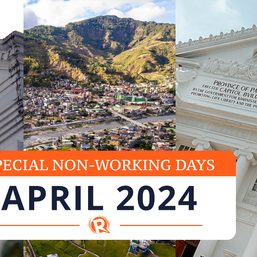
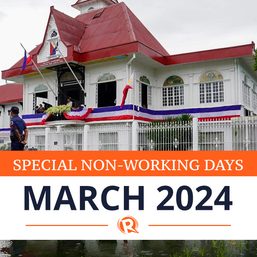
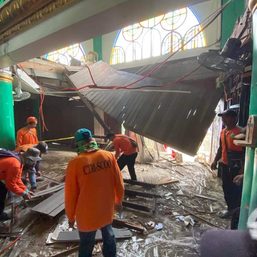
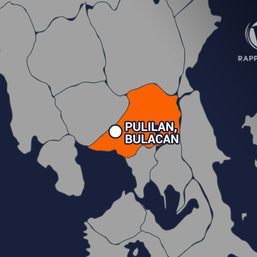
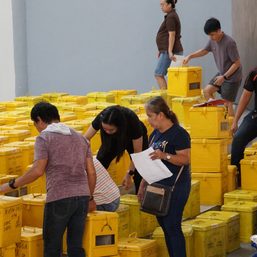
There are no comments yet. Add your comment to start the conversation.